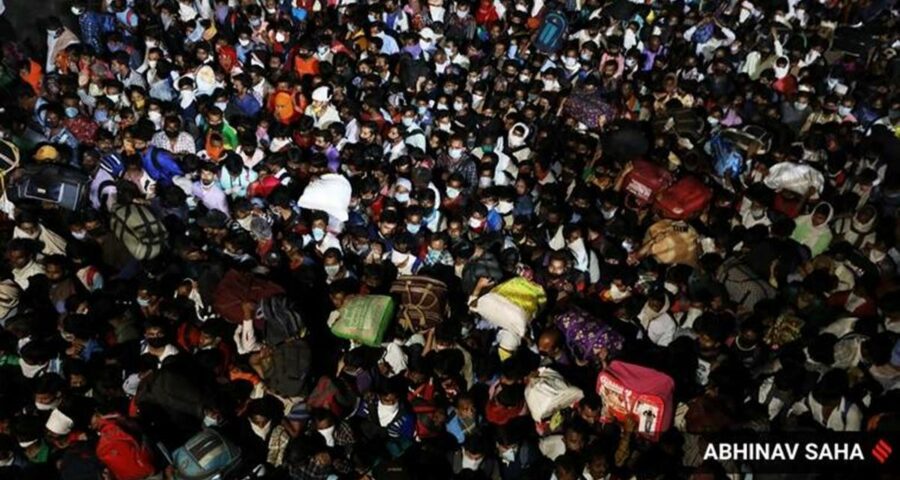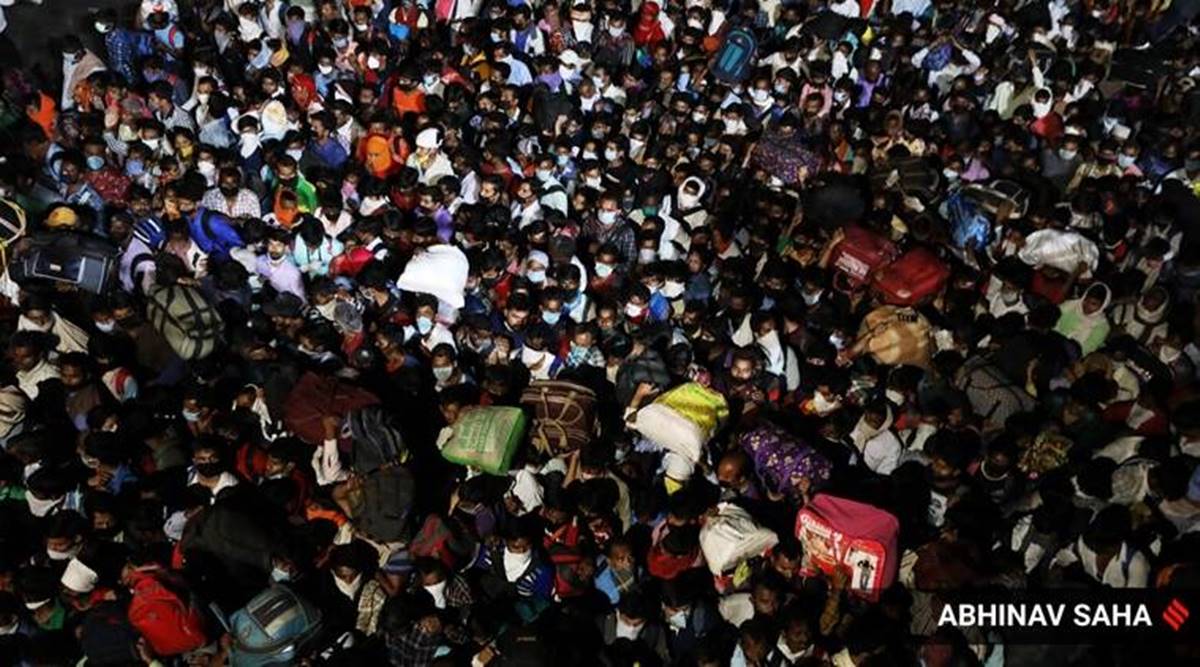Labour migration continues unabated, with little chance migrating out of poverty
Written by Santosh Koshy Joy
Tuesday dawned with the harrowing news of fifteen migrant labourers, from Banswara in Rajasthan, sleeping by the roadside in Gujarat’s Surat district, mowed down by a speeding truck. The tragedy which happened near the Kosamba village, around 60 km from Surat, was apparently due to the driver losing control over the vehicle after hitting a sugarcane-laden tractor.
There is more to this tragic event than what meets the eye. It is a wakeup call to understand the plight of the victims and their ilk. It is time to understand the misfortune faced by lakhs of migrant labourers who seasonally flock the towns of Gujarat from southern Rajasthan in search of livelihood. The real story here is the narrative of criminal inequality of social groups with historically deprived positions finding themselves in extremely disadvantageous spots even after seven decades of independence.
A study by Aajeevika Bureau, a non-profit entity working with the migrant labourers, estimates more than 4,00,000 migrant labourers from tribal-dominated southern Rajasthan districts reach Gujarat every year in search of livelihood and work under severe wage differentials and unequal access to basic human amenities.
The Scheduled Tribe population along with the Dalits falls in the bottom-most rung among all the diverse labour population in the urban centres of the country as per the report on Conditions of Work and Promotion of Livelihoods in the Unorganised Sector brought out by the National Commission for Enterprises in the Unorganised Sector in 2007. The agrarian situation in southern Rajasthan makes the situation more worse for the labourers from this region with many cases of bonded and child labour reported in the past. The form of bonded labour is more nuanced with the labour supply linked to a workforce provider in the source areas who pay money in advance to the family in lieu of the wages. The requirement for money often necessitated due to farming needs or for the medical treatment of a senior member in the family, who most probably would have been a migrant labourer himself.
The vicious cycle of intergenerational transfer of debt along with the historic impoverished condition of the tribal community of south Rajasthan has found little or no tangible solution from the policy makers. Even if there has been any effort, it has found only mentions in the budget speeches of successive governments and in official schemes often not percolating to the real beneficiary.
The worrisome aspect for the government and for every sensible citizen must be something more. With time, even after intervention through MGNREGA, the nature of the labour market segmentation of the region remains social identity-based. This also leads to inequality of wages and working conditions.
The recent Code of Wages passed in August 2009 will have more severe consequences for the lives of lakhs of migrant labourers from southern Rajasthan working in Gujarat. The Act claims to consolidate and codify the four major wage-related legislation of the Minimum Wages, Payment of Wages, Equal Remuneration and Payment of Bonus on the pretext of simplifying them for compliance and coverage.
Lack of focus of policymakers irrespective of governments on internal migration was at play with ample glare after the announcement of lockdown in India in March last year. Migration as a form of livelihood has been more a story of compulsion rather a monetary choice for the labourers of south Rajasthan. However, the impact of the meagre remittances received by the families in poor villages back home has often been a strong incentive for the younger lot to abandon schools and take the bus to Gujarat. The region is covered under the Tribal Sub Plan (TSP) area in Union Budgeting for special financial and scheme privileges. The TSP mode which has been diluted substantially after the winding up of the Plan Budgeting further clouds the possibility of any improvement in the lives of people in the region. While labour migration continues unabated, there seems little chance for the Adivasi communities of south Rajasthan to migrate out of poverty in near future.
(The writer is a freelance journalist)
Source: Read Full Article


